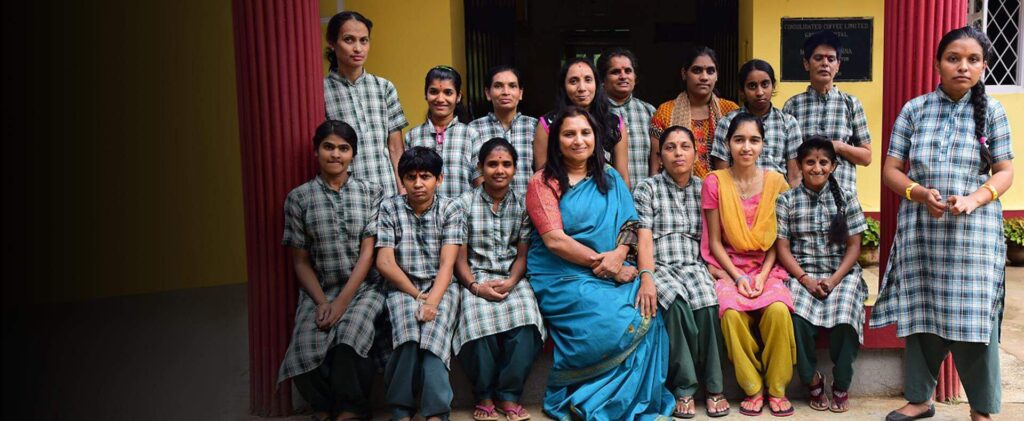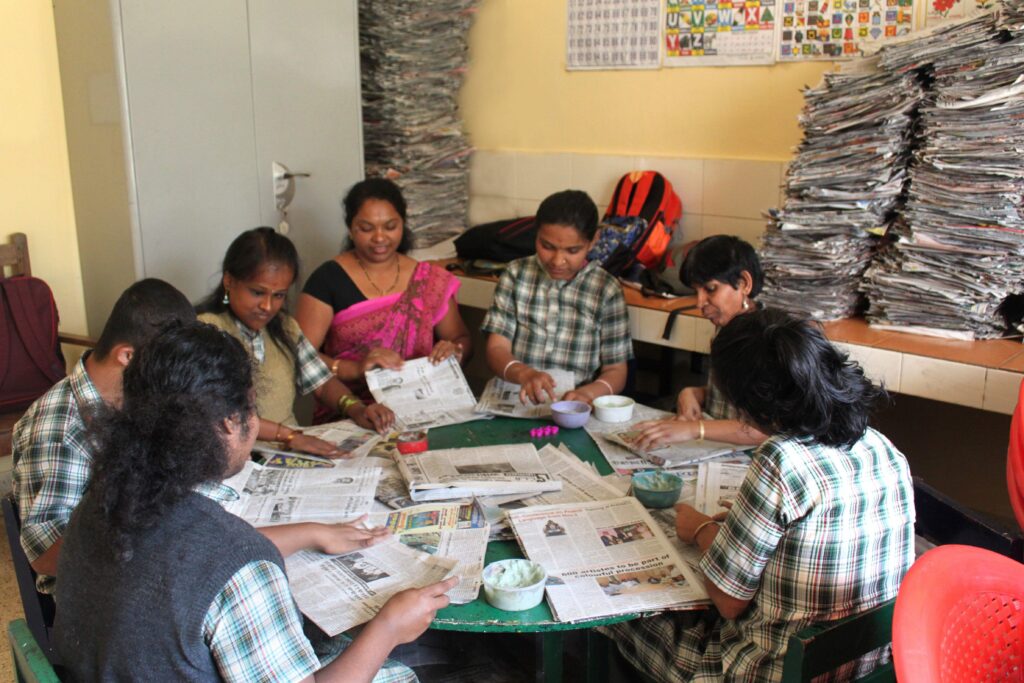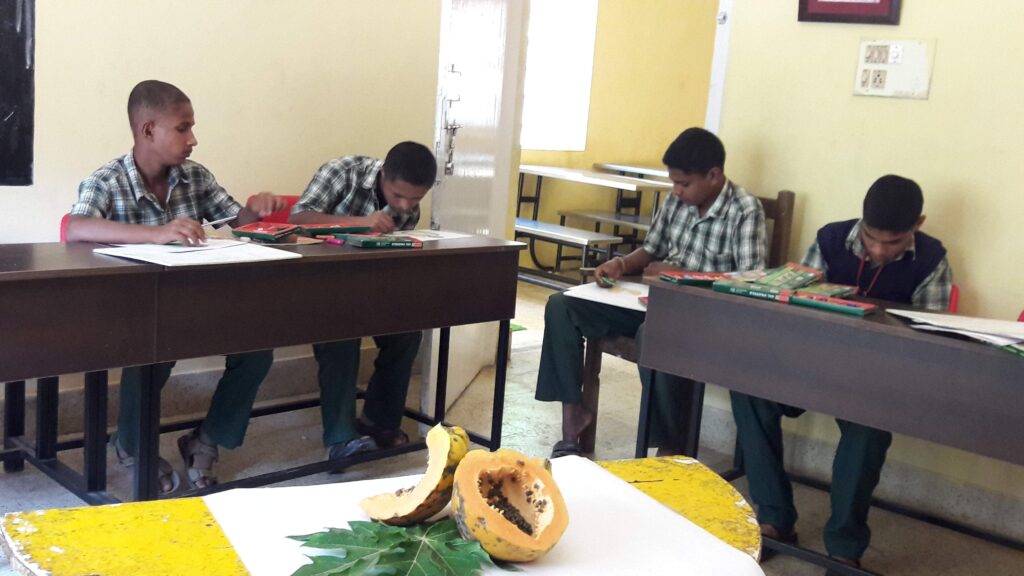Arathy Somaiah, Director of Swastha Center for Special Education and Rehabilitation speaks about their way of educating and training children with special needs in the rural areas of Coorg .

A few years ago, when Rekha was diagnosed with cerebral palsy, her parents had no clue about how to deal with this condition or help their daughter. Living in rural Coorg, they were at a disadvantage as there were only a few organisations that could train children with special needs. But Swastha Center for Special Education and Rehabilitation came to Rekha’s rescue. They not only educated her but also trained her in soft skills and empowered her with a job at their own institution. Like Rekha, there are several other special needs children in Coorg who come to this centre for education and soft skills training.
Started in 2003, the Swastha Center for Special Education and Rehabilitation is a project by the Coorg Foundation. The Coorg Foundation is a non-profit organisation that works for the education, health and well-being of people living in Coorg. Arathy Somaiah, Director of the centre, says, “When a child with special needs is born in a rural area, the family doesn’t understand how to deal with these conditions or how to educate them. In such cases, our centre plays an important role. We take such children under our umbrella. Any child with special needs from the age group of 6 to 18 years stays with us, gets trained and is later placed in government offices, Panchayat development offices and even the hospitality sector.”

So, what exactly are these children trained in? Arathy explains, “At Swastha, we have an Individual Education Programme (IEP). This is a tailored programme for each individual because the disabilities or needs of children vary from each other. For instance, a child with locomotor disability has a good IQ level when compared to a child with mental disability. In such instances, we check if they are interested in regular academics and we have a special educator along with a teacher who can teach the regular syllabus. We also counsel their parents about the child’s interests, learning skills and showcase how well they can do. Currently, we have 115 children at our institution.”
Swastha also provides vocational training for these children, says Arathy, “Our vocational programmes include tailoring, art and craft, book binding, nursery development and so on. These programmes are designed keeping the present market needs of customers in mind. All the products made by our students at the centre go to the market for sale. Be it the art and craft product or a stitched uniform, every product will match the competition. We take orders from factories and industries who love to use the quality products made by our children with patience.” What makes Swastha more unique is the fact that they pay the students for their efforts. “We ensure to incentivise our students for the products they make and sell in the market. Every student has their own bank account and we ensure to pay them for the work they do even during the training process. Once the training is completed, these children are placed in different companies. In case they want to start their own business, then we support them by providing them with the orders received at our centre. While skills, training and incentives help these children, we instill confidence in them to lead their lives at their own capability, ” explains Arathy.

So far, around 450 children have been trained at this centre. Out of this, at least 14 children have attempted and passed the SSLC exams. Currently, two children are preparing for the upcoming SSLC exams. “We had to send all the children back to their homes in April 2020 due to the pandemic. Since then, we have been conducting online classes. The main challenges, of course, are that some of these children have low internet connectivity or they lack smartphones. In such cases, we take the help of their neighbours who provide them with a phone for an hour of online classes. Besides this, we send them worksheets on WhatsApp. Once these kids solve the worksheets and send photographs, we convert them into PDFs and document them. Last September, we evaluated these worksheets and called children and their parents to show them their performance. We wanted to show the parents the seriousness of education for their children,” explains Arathy.
During the pandemic, the centre and the children trained in stitching clothes have been making masks. These masks are being sold to people and various factories who in turn provide them to their workers. Even now, the children are being incentivised for the masks that have been sold.
source: http://www.edexlive.com / Edex Live, The New Indian Express / Home> Special Education / by Rashmi Patil, Edex Live / June 30th, 2021

